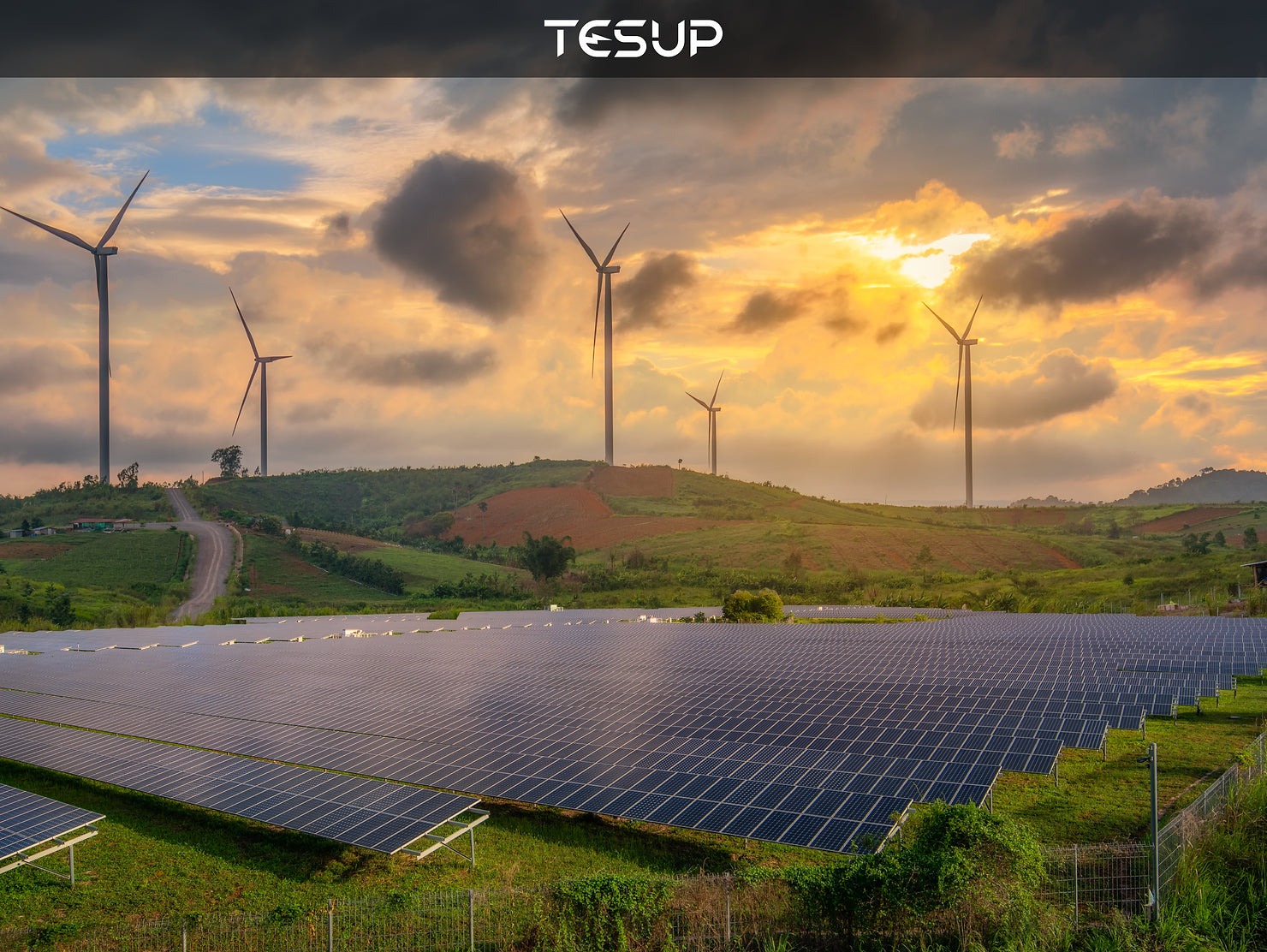
As a TESUP customer, we know that you're interested in the latest developments in the clean energy area. Today, we would like to inform you about the changing energy policies which have been a hot topic for the last few months on a global level. As the world faces increasing pressure to reduce greenhouse gas emissions and combat climate change, energy policies are rapidly evolving to reflect this need. Governments and businesses alike are adopting new policies and strategies to transition to cleaner, more sustainable sources of energy, and to reduce reliance on fossil fuels. In this blog post, we will take a closer look at the changing energy policies that are shaping our future.
To start with that closer look, one of the most significant changes in energy policy in recent years has been the growing focus on renewable energy sources such as wind, solar, and hydropower. Many governments have set targets for increasing the proportion of their energy that comes from renewables, often with ambitious goals for the next decade or two. For example, the European Union has set a target of achieving 32% renewable energy by 2030, and becoming carbon neutral by 2050.
Another important shift in energy policy has been the increasing emphasis on energy efficiency. This means making buildings, appliances, and other energy-consuming devices more efficient, so they require less energy to operate. By reducing energy consumption, we can reduce our dependence on fossil fuels and lower greenhouse gas emissions. Many governments and businesses have introduced policies and incentives to encourage energy efficiency, such as tax credits for energy-saving upgrades and regulations for energy-efficient building codes.
In addition to these policy changes, there are also rapid advances in energy storage technologies, which will play a critical role in enabling the transition to renewable energy sources. Energy storage systems allow us to store excess energy generated by renewable sources, such as solar or wind power, and use it when it is needed. This helps to smooth out fluctuations in energy supply, and make renewable energy sources more reliable and practical.
Finally, there is growing recognition of the need to address social and economic issues associated with energy policy. Many policies and initiatives are being designed to ensure that the transition to clean energy creates new jobs and economic opportunities, particularly in areas that have traditionally relied on fossil fuels. Similarly, there is a need to ensure that low-income households are not left behind by the transition to clean energy, and that they have access to affordable energy sources.

It is clear that changing energy policies are a critical component of the global effort to address climate change and build a sustainable future. By focusing on renewable energy sources, energy efficiency, energy storage, and social and economic issues, we can create a more sustainable and equitable energy system. Achieving these goals will require significant investment, innovation, and collaboration, but with the right policies and strategies in place, we can make a real difference. Please contact TESUP if you want more information about this issue or if you want to act together.
